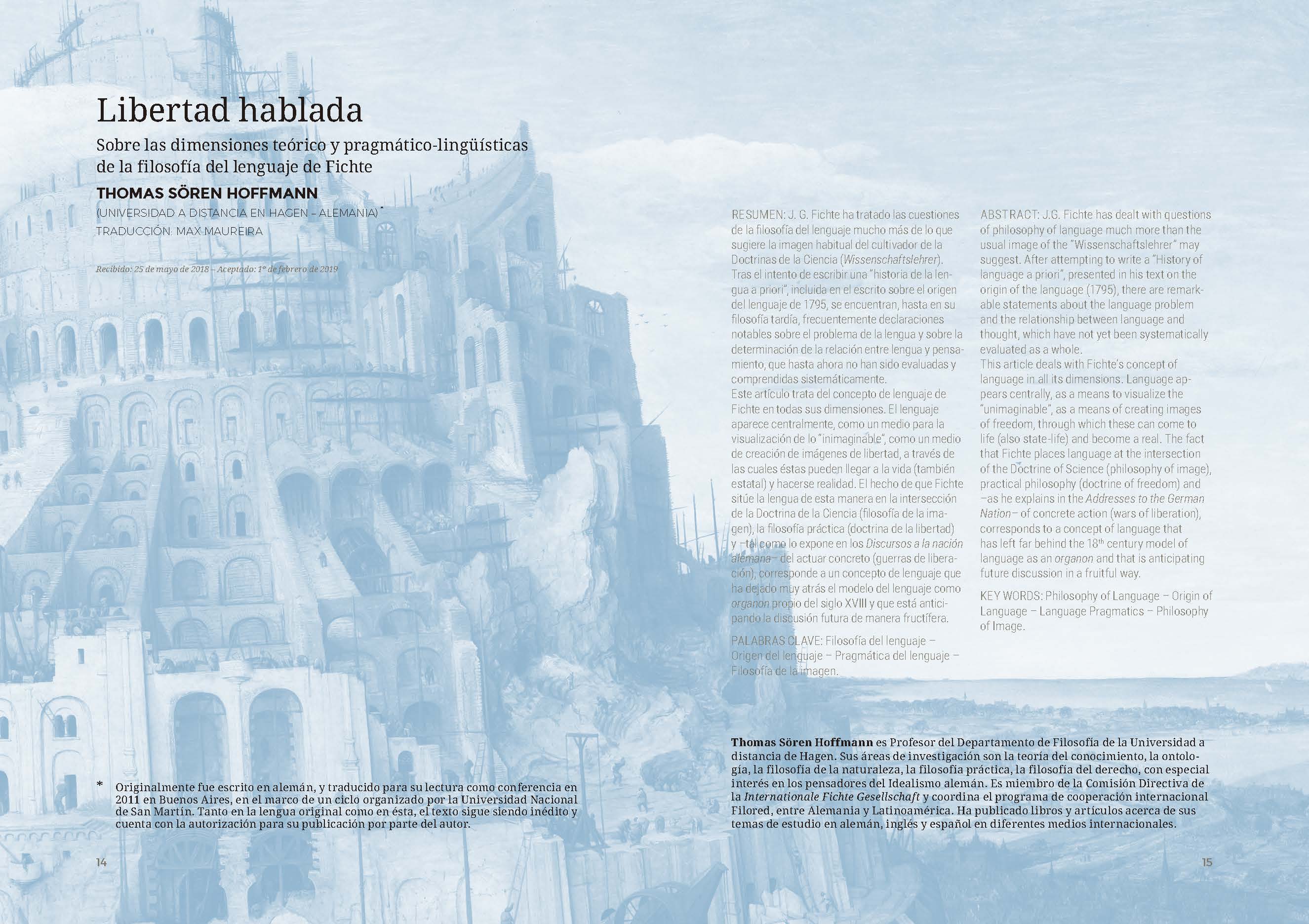Spoken Freedom
On the Theoretical and Pragmatico-linguistic Dimensions of Fichte's Philosophy of Language
Keywords:
Philosophy of Language, Origin of Language, Language Pragmatics, Philosophy of ImageAbstract
J.G. Fichte has dealt with questions of philosophy of language much more than the usual image of the “Wissenschaftslehrer” may suggest. After attempting to write a “History of language a priori”, presented in his text on the origin of the language (1795), there are remarkable statements about the language problem and the relationship between language and thought, which have not yet been systematically evaluated as a whole. This article deals with Fichte‘s concept of language in all its dimensions. Language appears centrally, as a means to visualize the “unimaginable”, as a means of creating images of freedom, through which these can come to life (also state-life) and become a real. The fact that Fichte places language at the intersection of the Doctrine of Science (philosophy of image), practical philosophy (doctrine of freedom) and –as he explains in the Addresses to the German Nation– of concrete action (wars of liberation), corresponds to a concept of language that has left far behind the 18th century model of language as an organon and that is anticipating future discussion in a fruitful way.
Downloads

Downloads
Published
How to Cite
Issue
Section
License
Copyright (c) 2019 Thomas Sören Hoffman; Max Maureira

This work is licensed under a Creative Commons Attribution-NonCommercial-ShareAlike 4.0 International License.




